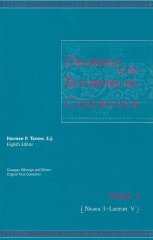In his second plenary address at the eastern regional meeting of the Evangelical Theological Society last spring, Stephen Chapman, Assistant Professor of Old Testament at Duke Divinity School, suggested some ways to navigate some of the pitfalls of current canon debates. In his closing remarks, Chapman emphasized the statement of the First Vatican Council (1868) that:
The complete books of the old and the new Testament with all their parts . . . the church holds to be sacred and canonical not because she subsequently approved them by her authority after they had been composed by unaided human skill, nor simply because they contain revelation without error, but because, being written under the inspiration of the holy Spirit, they have God as their author, and were as such committed to the church” ( Tanner 806; emphasis added).
Many Protestants would certainly take issue with the documents Vatican I recognizes as fulfilling these criteria for canonical literature—namely, the books: (1) “as they are listed in the decree of [the Council of Trent]” [which includes some deutero-canonical documents (see Tanner 663)] and (2) “as they are found in the old Latin Vulgate edition” ( Tanner 806). Yet, Protestants should still be able to benefit from and perhaps even agree with, the criteria provided and the theological perspective put forward in this section of Vatican I’s decrees.
In this post:[caption id=“attachment_2057” align=“alignleft” width=“80” caption=“Norman Tanner”]  [/caption]
[/caption]
- Stephen Chapman, “Working with a Core Canon”
- Duke Divinity School, “Stephen Chapman”